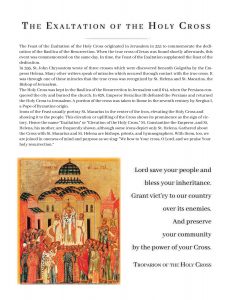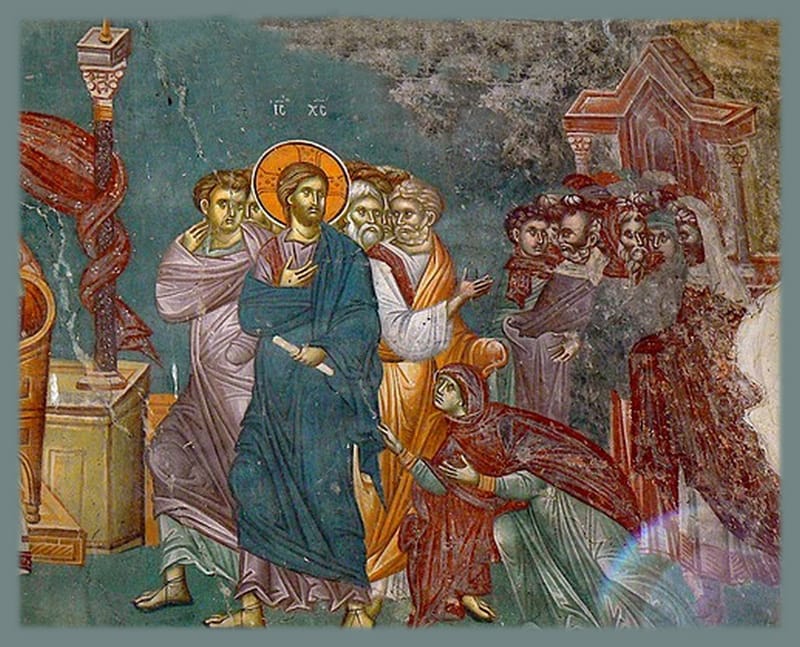 Read: Ephesians 2:14-22; Luke 8:41-56
Read: Ephesians 2:14-22; Luke 8:41-56
Many people are squeamish at the sight of blood, some even faint away. This is because of fear – we know that loss of blood can lead to loss of life. The blood flowing in our veins is life. In this Sunday’s Gospel, the Lord encounters a woman who has had a hemorrhage for twelve years – life is slowly seeping away from her. But death cannot remain in the presence of Christ, and merely by secretly touching his garment, she is healed by his power.
Today’s Gospel contains this healing within a healing, a raising form the dead. Our Lord is on his way to raise the twelve-year old daughter of Jairus, where he redefines death as sleep, ““Do not weep any longer, for she is not dead, but sleeping” (Luke 8:52). See that for God, time is without meaning, for the woman with the hemorrhage, twelve years seems an eternity, but for the little girl, twelve years is much too short. For the Jews at the time of Jesus, blood signified life. When animals were sacrificed, the blood was poured out as a libation, for the life belongs to God. While our Lord stopped the flow of the blood for the woman, and gave life to the little girl, he instead shed his own blood for the life of the world and died on the Cross to bring us all resurrection. He invites us to share in his blood, “Then he took a cup, gave thanks, and gave it to them, and they all drank from it. He said to them, ‘This is my blood of the covenant, which will be shed for many.’” (Mark 14:23-24).
The healing of the woman with the hemorrhage connects with the epistle in yet another way. In the Jewish law, even someone who touched a woman shedding blood (menstruation or in giving birth) became unclean. Yet the woman “came up behind [Jesus] and touched the tassel on his cloak. Immediately her bleeding stopped. Jesus then asked, ‘Who touched me?’” (Luke 11:44-45). Jesus was not angry at her, but instead said, “Daughter, your faith has saved you; go in peace” (Luke 11:48). Jesus, however, has broken the wall, as St. Paul reflects, “But now in Christ Jesus you who once were far off have become near by the blood of Christ. For he is our peace, he who made both one and broke down the dividing wall of enmity, through his flesh …. for through him we both have access in one Spirit to the Father” (Ephesians 2:13-14.18).
In the Old Law, the flow of blood made people unclean, but partaking of the blood of Christ in Communion cleanses us of sin.
Meditation by Archpriest David Petras
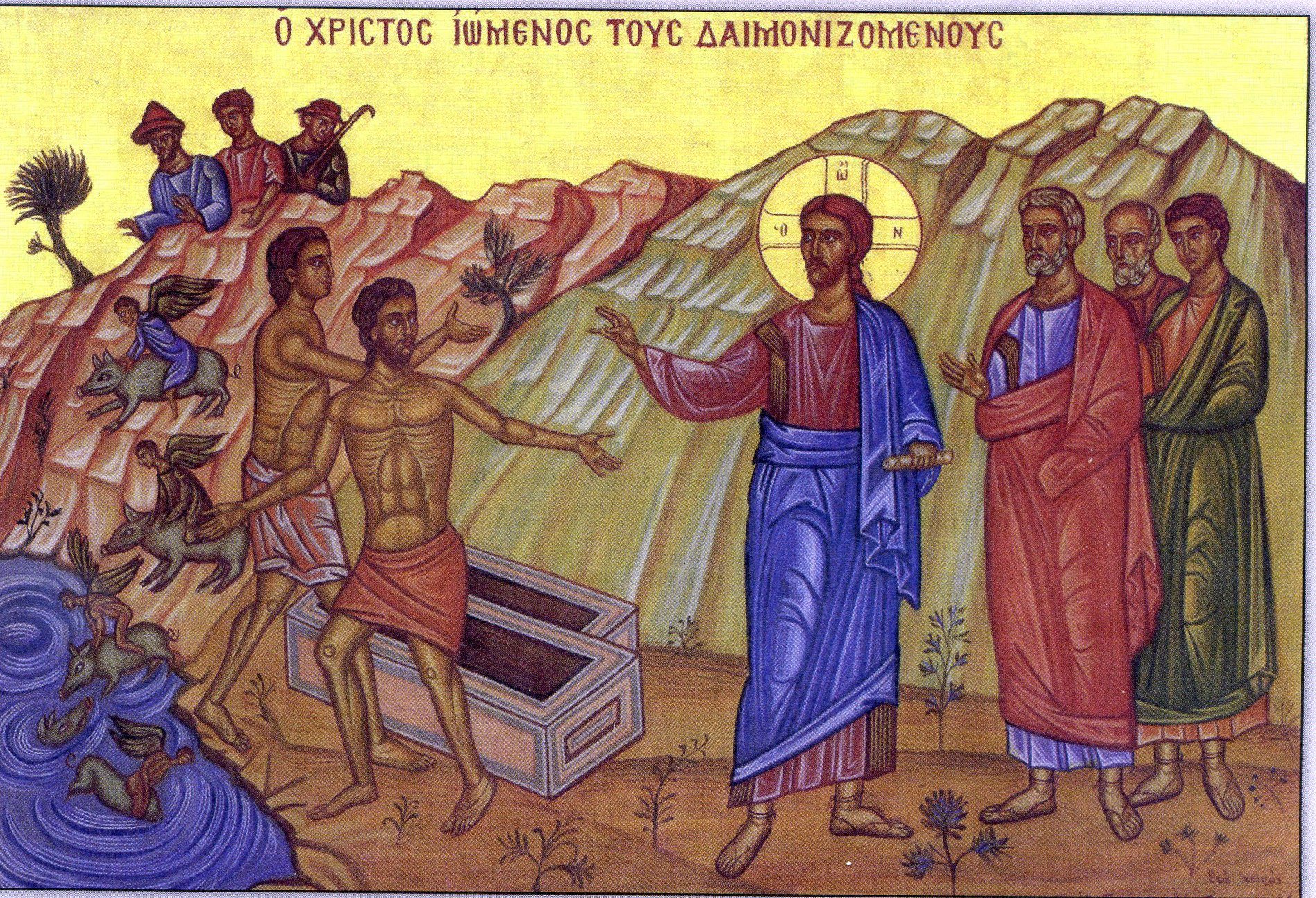 Read:
Read: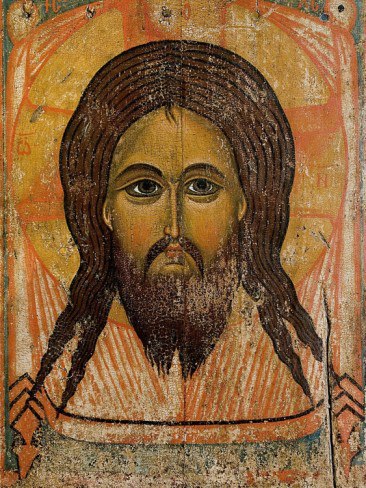 “There is nothing hidden that will not become visible, and nothing secret that will not be known and come to light” (Luke 8:17).
“There is nothing hidden that will not become visible, and nothing secret that will not be known and come to light” (Luke 8:17).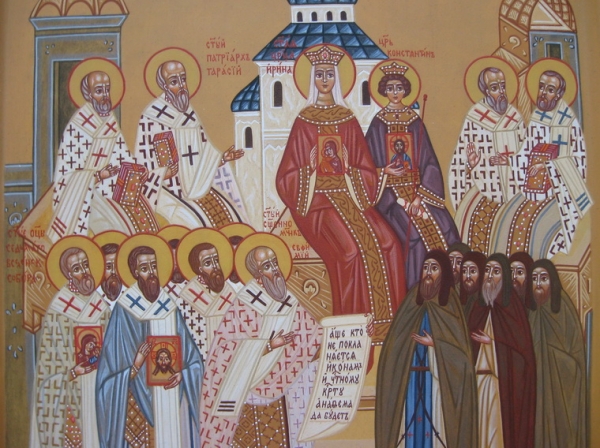 On this Sunday, we also remember the Nicea II Council in 787, which defined that we can make images (icons) of our Lord and the saints, and venerate them. This council was held in the midst of the iconoclastic (the “image breaking”) controversy, the first phase from 726-787, and the second phase from 814-842. It draws attention to how important images are for us. I know of few homes that do not have a picture, today usually a photograph but sometimes a portrait or drawing, of those we love. If we love Christ first with our whole heart and mind and soul, the image helps us to focus that love.
On this Sunday, we also remember the Nicea II Council in 787, which defined that we can make images (icons) of our Lord and the saints, and venerate them. This council was held in the midst of the iconoclastic (the “image breaking”) controversy, the first phase from 726-787, and the second phase from 814-842. It draws attention to how important images are for us. I know of few homes that do not have a picture, today usually a photograph but sometimes a portrait or drawing, of those we love. If we love Christ first with our whole heart and mind and soul, the image helps us to focus that love.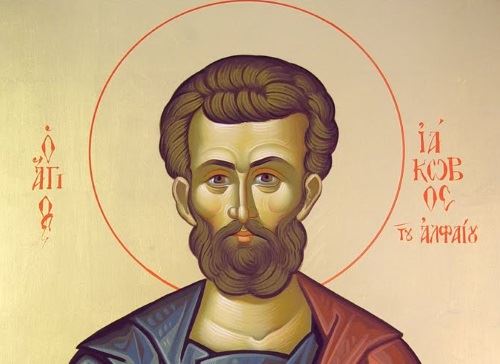 The Byzantine Church discerns three apostles named James: James the Greater, the son of Zebedee; James, the Brother of the Lord and first bishop of Jerusalem; and James, the son of Alphaeus. We celebrate the feast of the latter today. He is the James about which we know the least. The only mention of him was in the lists of the Twelve Apostles. Some speculate that he was the James mentioned by St. Paul in 1 Corinthians 15:7, “After that he appeared to James, then to all the apostles,” but commentators even doubt that was this James, also called “James the Lesser.” However, it does point to the mission of the apostles, which was to proclaim the risen Lord, a message which has resounded throughout the ages to this very day.
The Byzantine Church discerns three apostles named James: James the Greater, the son of Zebedee; James, the Brother of the Lord and first bishop of Jerusalem; and James, the son of Alphaeus. We celebrate the feast of the latter today. He is the James about which we know the least. The only mention of him was in the lists of the Twelve Apostles. Some speculate that he was the James mentioned by St. Paul in 1 Corinthians 15:7, “After that he appeared to James, then to all the apostles,” but commentators even doubt that was this James, also called “James the Lesser.” However, it does point to the mission of the apostles, which was to proclaim the risen Lord, a message which has resounded throughout the ages to this very day.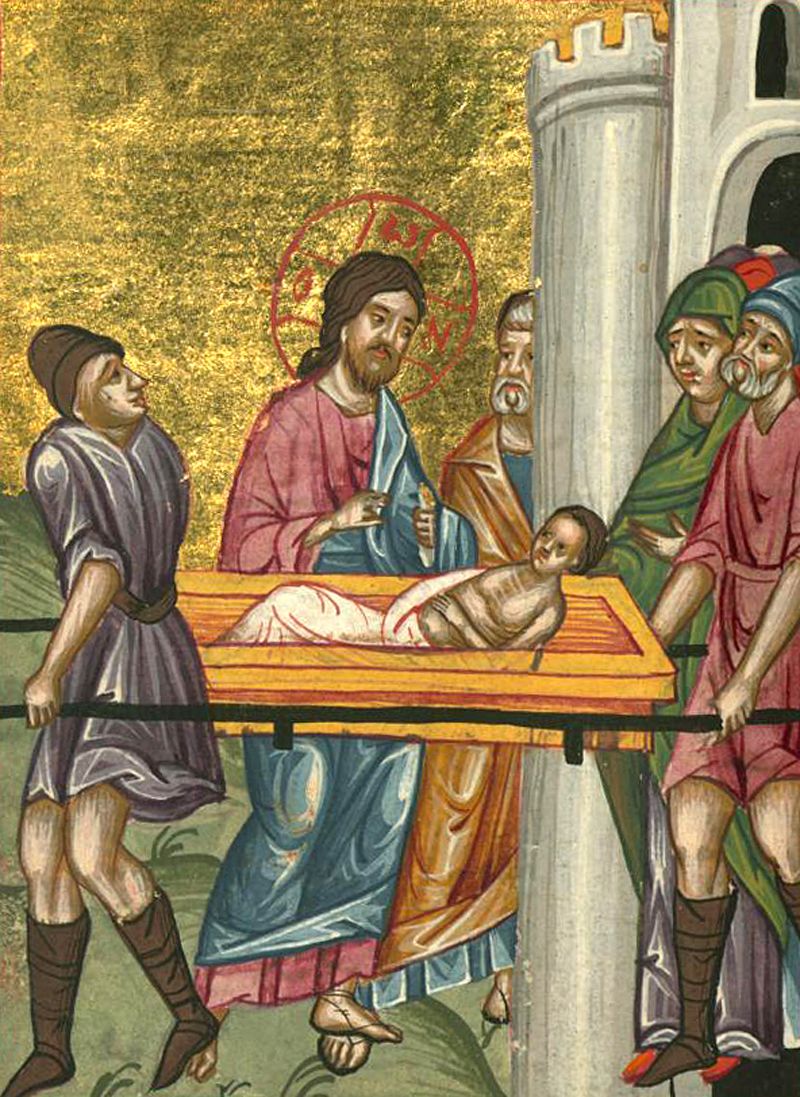 Our Lord is the Life-giver. The gospels record Jesus’ presence at baptisms and weddings, but never at a funeral, for death cannot remain in the presence of the Giver of Life. Today Jesus comes upon a funeral in the village of Nain, it seems almost accidently and by chance, though nothing ever happens totally by chance. Jesus stops the funeral and raises up the young man, the only son of a grieving widow.
Our Lord is the Life-giver. The gospels record Jesus’ presence at baptisms and weddings, but never at a funeral, for death cannot remain in the presence of the Giver of Life. Today Jesus comes upon a funeral in the village of Nain, it seems almost accidently and by chance, though nothing ever happens totally by chance. Jesus stops the funeral and raises up the young man, the only son of a grieving widow.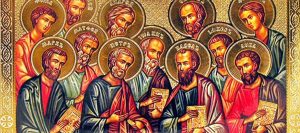 Read: 2 Corinthians 11:31-12:9; Luke 6:31-36
Read: 2 Corinthians 11:31-12:9; Luke 6:31-36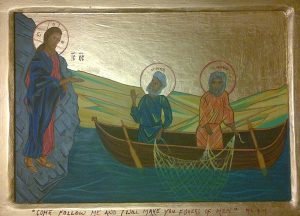 Read: 2 Corinthians 9:6-11; Luke 5:1-11
Read: 2 Corinthians 9:6-11; Luke 5:1-11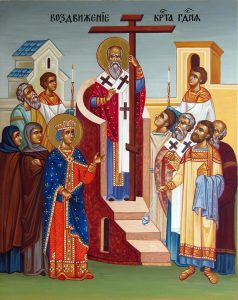 Read: Galatians 2:16-20; Mark 8:34-9:1
Read: Galatians 2:16-20; Mark 8:34-9:1